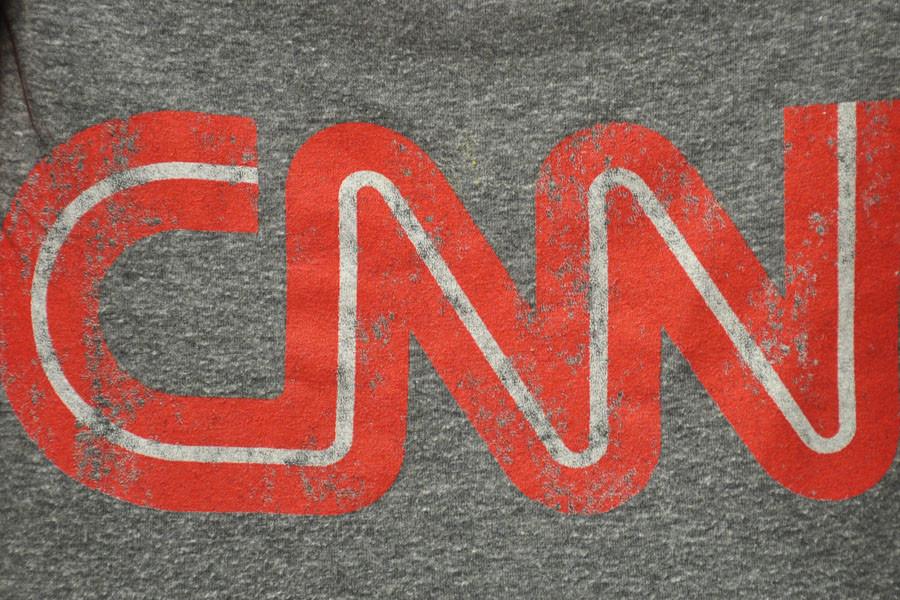CNN, Facebook host a lively first democratic national debate
More stories from Savannah Bullard
Photo Credit: Photo by Hannah Cox
Better late than never.
Yesterday five potential presidential candidates took the Las Vegas stage for the very first democratic national debate. Hosted by CNN and Facebook, CNN reporter Anderson Cooper led the White House hopefuls through a series of issues that have captured the American public’s attention. Artist Sheryl Crow sealed the opening with the National Anthem and standing by were CNN reporters Don Lemon, Dana Bash and Juan Carlos Lopez.
Former Secretary of State, Hillary Clinton, was the front-runner of the debate. She dominated discussions on almost every topic and made it perfectly clear that she belonged at center stage. She often sparred with Vermont Senator Bernie Sanders, who has caught up — and sometimes surpassed — Clinton’s rankings on the campaign trail.
Former Maryland Governor, Martin O’Malley, wowed listeners with a surprising sense of vigor, taking on the more seasoned candidates with knowledgeable rebuttals and firm, consistent viewpoints. He was obviously bored of being in the background and showed up last night to make his name more known. Virginia-born, former U.S. Senator Jim Webb and former Rhode Island Governor Lincoln Chafee bookended the platform, trying, yet failing, to add meat to the discussion. Webb was more worried about sharing talk time equally and Chafee primarily basked in the thought of being one of the few “scandal-free” candidates. It would not be surprising to see them veer off the campaign trail soon.
The debate opens with all eyes on Sanders, who was asked about his political standings as a democratic socialist. Cooper kept the discussion moving while struggling to keep candidates within their 2-minute time allowances.
Gun control heated up the debate hall when Clinton and Sanders squabbled about the gray areas of proper firearm sales and Sanders is pressed with the question of what constitutes as necessary military action. Russia and Syria were touchy subjects, due to the fact that some candidates were polar opposites as to whether military action should be an option. The decision to invade Iraq in 2003 is criticized more than once by all the candidates and Webb, a Vietnam veteran himself, calls out Sanders and Clinton for their often polar motivations regarding war. Chafee often fought for “middle ground” while Webb was mostly angry about Clinton being allowed to speak longer than him.
One worrisome issue regards domestic fiscal responsibility. Sanders adamantly advocates “Fight for 15,” a movement that urges to raise the minimum wage to $15 per hour. While raising the minimum wage is widely supported by the democratic contenders and voters across the nation, it is criticized that candidates refuse to consider modesty in reformation. Tuition-free public universities and colleges were brought up as well, yet have been rebutted with questions about what will become of taxes and what should be done for the 40 million people who are buried in school debt today.
Racial tension and same-sex marriage were mentioned, but the candidate’s responses were entirely expected. The Black Lives Matter debate energized the crowd a few times, but the race issues kept going in circles, which is the same thing that has happened since the Ferguson, Missouri riots from last summer. Same-sex marriage was rarely discussed in length.
Candidates were asked to explain themselves on a number of issues that may hinder their campaigns, including Chafee’s wishy-washy party affiliation and Clinton’s “damn emails.” However O’Malley came to Clinton’s side and the crowd roared at his remark about how no candidate’s campaign should be defined by their past.
As it stands, Clinton, O’Malley and Sanders show true promise. While some criticize that not all the information used in arguments (specifically against Clinton and Sanders) was current and spot on, we have to remember that this is just the first debate. It is also no doubt that Webb and Chafee have gotten only a fraction of media attention, compared to the hotshot Clinton and underdog Sanders. But that is what debates are about: who shines and who steps back. The Democratic Party is shaping up to be a good one.


